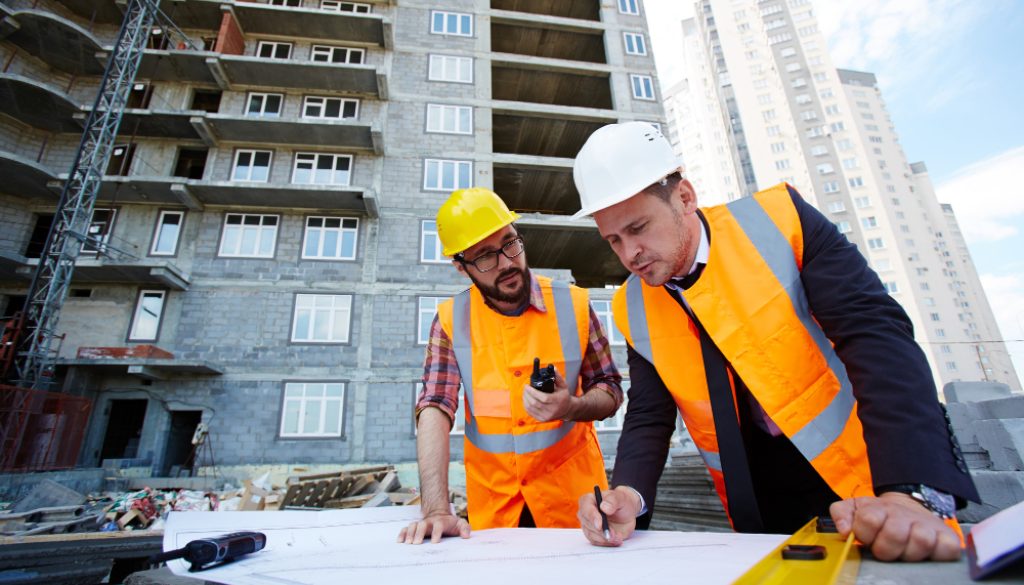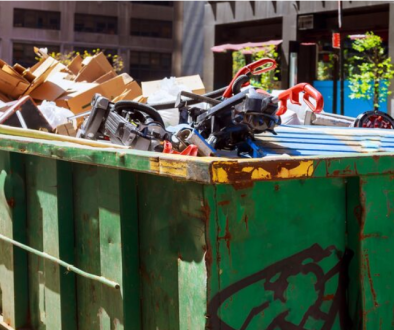As the construction industry grapples with its environmental impact, companies across the sector are increasingly recognising the critical importance of adopting sustainable practices. One central aspect of this reorientation is the growing interest in leveraging eco-friendly materials like recycled aggregates to promote resource efficiency and minimise waste. As a dedicated family-run skip hire and aggregate company servicing Staffordshire, we understand the vital role that sustainability plays in shaping the industry and are committed to empowering our clients with the knowledge and resources to make informed decisions that foster a greener, more responsible future.
Recycled aggregates are materials obtained from the processing and repurposing of waste generated during construction, demolition, and industrial processes. Through careful recycling techniques and rigorous quality-control mechanisms, these materials can be turned into new, valuable resources that can effectively replace traditional, less environmentally friendly alternatives. The use of recycled aggregates not only helps reduce waste routed to landfill but also conserves natural resources, supports circular economy principles, and ultimately, reduces the overall environmental impact of construction projects.
In this in-depth article, we will explore the growing importance of sustainability in the construction industry, particularly through the lens of aggregates. We will discuss the benefits of incorporating recycled aggregates into construction projects, the potential challenges, and the role of waste management companies in enabling this shift towards sustainable aggregate solutions. Finally, we will examine how embracing environmentally responsible practices can contribute to an improved public image, compliance with regulations and industry standards, and cost savings in the long run.
1. Benefits of Using Recycled Aggregates
The use of recycled aggregates in construction projects offers multiple benefits, contributing to both economic and environmental improvements. Some key benefits include:
- Resource conservation: Utilising recycled materials reduces the demand for natural aggregates, helping to preserve finite resources such as sand, gravel, and crushed stone.
- Waste reduction: By repurposing waste generated from construction and demolition projects, recycled aggregates help divert significant volumes of waste from landfills, reducing environmental degradation and protecting valuable space.
- Cost savings: Recycled aggregates are generally more cost-effective than their virgin counterparts, with lower production costs and often competitive end-product prices, resulting in a more affordable alternative for clients.
- Carbon footprint reduction: By opting for locally sourced recycled materials, transportation distances are minimised, cutting down on emissions and contributing to a reduced carbon footprint in your projects.
2. Challenges in Adopting Recycled Aggregates
While using recycled aggregates offers numerous benefits, there are a few potential challenges worth noting. These include:
- Quality assurance: Ensuring consistency and quality of recycled aggregates is crucial in maintaining the structural integrity and performance of a construction project. Rigorous quality-control systems and adherence to industry standards are vital in addressing this concern.
- Perceptions and acceptance: Misconceptions and resistance to change may present challenges in promoting acceptance of recycled aggregates among industry professionals and stakeholders.
- Regulatory framework: Familiarity with varying regulations and standards in different geographical regions is essential for the successful adoption of recycled aggregates.
3. The Role of Waste Management Companies in Promoting Sustainable Aggregates
Working with experienced waste management partners can greatly facilitate sustainable solutions, as they offer:
- Expert guidance: Knowledgeable waste management providers can help you make informed decisions on the suitability of recycled aggregates for your projects.
- Quality assurance: A responsible waste management partner will ensure recycled aggregates adhere to stringent quality-control processes and industry standards.
- Seamless supply chain: Established waste management providers have a well-connected supply chain, ensuring a consistent and reliable supply of recycled aggregates to keep your construction projects running smoothly.
4. Embracing Sustainability in the Long Term
The move towards green construction practices, including the use of recycled aggregates, can lead to several long-term benefits, such as:
- Strengthened public image: Demonstrating a commitment to sustainability can enhance your company’s reputation, potentially attracting more clients and boosting employee retention.
- Regulatory compliance: Embracing sustainable materials can help ensure compliance with local, regional, and international regulations and standards, minimising potential fines or sanctions.
- Financial viability: Eco-friendly practices can reduce costs in the long run, as sustainable materials may be more affordable, and waste reduction can lead to decreased disposal fees.
Conclusion
The adoption of sustainable practices, including the use of recycled aggregates, is a crucial step towards creating a more environmentally conscious construction industry. By understanding the benefits and challenges of utilising recycled aggregates and partnering with experienced waste management providers, construction businesses can make informed decisions that contribute to a greener, more responsible future.
If you’re looking to explore sustainable construction materials and practices for your projects, our team of waste management experts is here to help. Enviro Skip Hire offers comprehensive support and guidance when it comes to sourcing and using 6f2 aggregates, ensuring you meet environmental goals and industry standards. Together we can build a more sustainable future for the construction industry and our planet.




